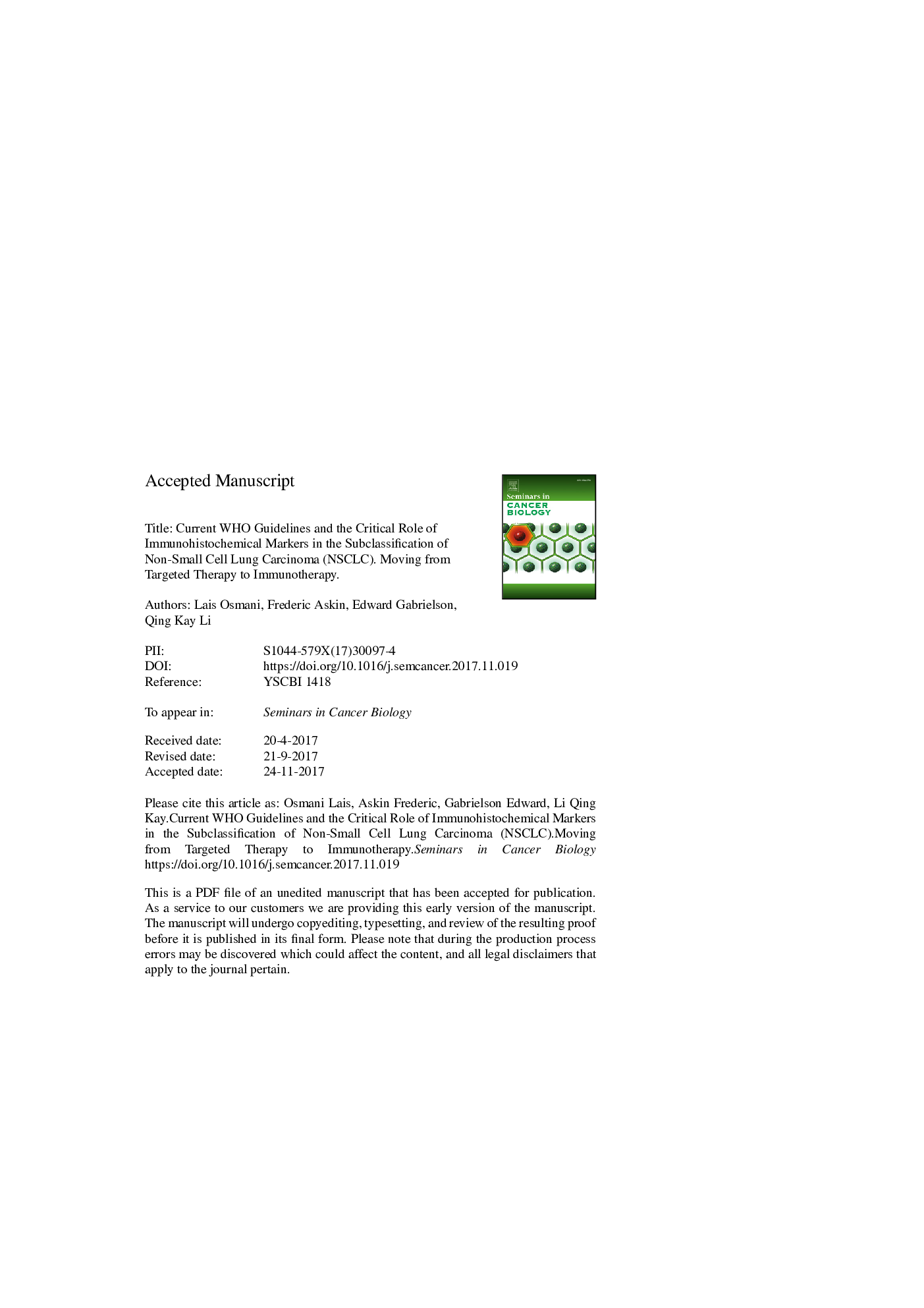| Article ID | Journal | Published Year | Pages | File Type |
|---|---|---|---|---|
| 10157018 | Seminars in Cancer Biology | 2018 | 27 Pages |
Abstract
Recent large scale genomic studies from the Clinical Lung Cancer Genome Project have identified different driver gene mutations in the subtypes of non-small cell lung carcinoma (NSCLC). These findings not only lead to remarkable progress in targeted therapies for lung cancer patients, but also provide fundamental knowledge for the subclassification of NSCLC. More recently, the advancement and clinical application of immunotherapy have reinforced the need for the accurate subclassification of NSCLC. In 2015, the World Health Organization (WHO) and the International Association for the Study of Lung Cancer (IASLC) updated their guidelines for the subclassification of lung cancers. These guidelines emphasize: (1) the subclassification of NSCLC, (2) the critical role of molecular characterization of tumors for targeted therapy, (3) the unique terminology for subclassifying NSCLC using small biopsy specimens, and (4) the utility of IHC biomarkers in the accurate diagnosis and subclassification of lung cancer. The guidelines have significant prognostic impact on oncologic practice and patient care. In this review, we summarize the current WHO guidelines for the classification of lung cancer, discuss advancements of targeted therapy and immunotherapy, and address the utility and limitation of immunomarkers in the subclassification of NSCLC, as well as the prospective future of the field.
Related Topics
Life Sciences
Biochemistry, Genetics and Molecular Biology
Biochemistry
Authors
Lais Osmani, Frederic Askin, Edward Gabrielson, Qing Kay Li,
